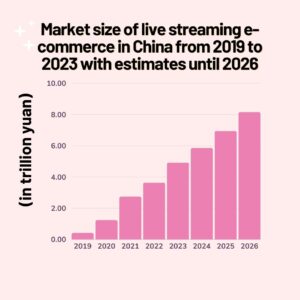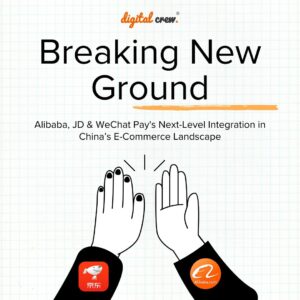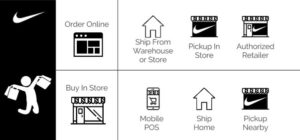DeWu is not just another e-commerce platform; it’s a cultural phenomenon. Nestled at the intersection of Chinese Gen Z and luxury brands, DeWu has become the go-to platform for the young and affluent in China. But what makes it so special? Stick around as we unravel the DeWu enigma in this blog series.
The Evolution of DeWu: From Sneakers to Luxury
DeWu, originally known as Du, started as a platform incubated through a sports forum named HuPu. It initially facilitated the exchange of information and identification of sneakers. Over the years, DeWu expanded its product categories to include clothing, handbags, watches, electronics, and more. By 2022, it had a valuation of 10 billion USD and was identified as one of the top 100 global unicorn companies.
Innovation and Expansion:
DeWu has been a pioneer in integrating 3D rendering software for live try-on and product viewing. It also launched its own NFT space within the app.
Why DeWu Stands Out: The Unique Selling Proposition (USP)
One of DeWu’s standout features is its “identify first, ship later” shopping approach. This anti-counterfeit measure has not only enhanced user trust but also created a safe marketplace for high-end, limited-edition, and collector’s items. This approach resonates well with its user base, which is keen on authenticity, especially when it comes to brand-name fashion and accessories.
The Magnet for Brands: Adoption and Community Building
DeWu has progressively become a magnet for brands, with over 5,000 of them, including high-end labels like Adidas, Coach, Michael Kors, and Armani, establishing a presence. The platform’s burgeoning user base, coupled with a growing demand for quality products, has made it an attractive proposition for brands. The community-centric nature of DeWu encourages both users and brands to generate high-quality content, fostering a vibrant community where users can discuss and share their purchases and impressions.
The Economic Footprint of DeWu
The economic trajectory of DeWu is on an upswing, with its revenue in 2019 standing at 7 billion yuan, predominantly from sneaker sales. The platform had nearly monopolized the domestic second-hand shoe market by then. By 2020, the number of product identifications on DeWu had soared past 60 million, showcasing its growing appeal and the quality assurance it provides to its users. By 2021, DeWu expanded into Hong Kong, Japan, Europe and America.
The Social Commerce Aspect: Video Content and Engagement
Reflecting the social commerce trend, DeWu has embraced video content to bolster engagement. A sizable chunk of daily usage time on DeWu is spent on watching videos, prompting the platform to launch a “Video Account” feature to capitalize on this trend and foster better engagement between creators, brands, and users.
Why Luxury Brands Can’t Ignore DeWu
The Business Opportunity
Whether luxury brands like it or not, their products will be sold on DeWu, often at prices they may not be willing to sell at. This makes DeWu an unavoidable channel for luxury brands looking to shape their strategy in China.
Brand Collaboration:
DeWu offers brands the chance to create a brand official DeWu store and even allows for brand direct sales of selected items.
This blog will focus on the luxury brands that have found a home on DeWu. We’ll look at their performance, estimated GMV revenue, and how they’re leveraging the platform for their benefit.
Understanding DeWu and Its User Base
In this blog, we’ll dive deep into who’s actually using DeWu. Is it all hype, or is there substance behind the numbers? We’ll also explore the grey market’s influence on the platform and what that means for luxury brands.
Why Should You Care?
If you’re a brand looking to tap into the Chinese Gen Z market, DeWu is where you need to be. And if you’re a consumer looking for the next big thing in luxury shopping, look no further.
Interested in leveraging DeWu for your brand? Contact Digital Crew to find out how you can make the most of this booming platform.























